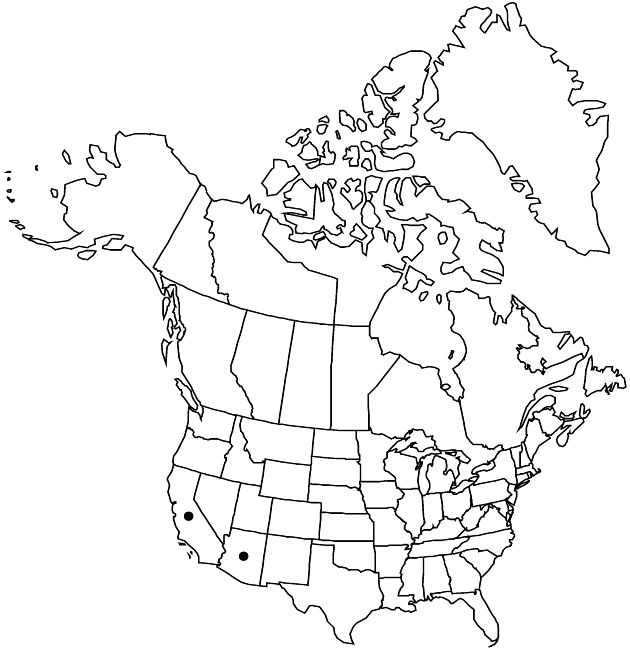Difference between revisions of "Stylocline sonorensis"
Contr. Dudley Herb. 4: 26. 1950.
FNA>Volume Importer |
imported>Volume Importer |
||
| (2 intermediate revisions by 2 users not shown) | |||
| Line 48: | Line 48: | ||
|publication year=1950 | |publication year=1950 | ||
|special status= | |special status= | ||
| − | |source xml=https:// | + | |source xml=https://bitbucket.org/aafc-mbb/fna-data-curation/src/2e0870ddd59836b60bcf96646a41e87ea5a5943a/coarse_grained_fna_xml/V19-20-21/V19_748.xml |
|tribe=Asteraceae tribe Gnaphalieae | |tribe=Asteraceae tribe Gnaphalieae | ||
|genus=Stylocline | |genus=Stylocline | ||
Latest revision as of 19:55, 5 November 2020
Plants 2–10(–15) cm. Leaves blunt (proximal) or acute (median and distal), mucronate, longest 6–13 mm; largest capitular leaves ± elliptic to narrowly ovate, 3–10 × 2–3 mm. Heads in cymiform to ± paniculiform, sometimes dichasiform arrays, ± spheric, largest 3.5–4.5 × 3–4 mm, thickly lanuginose. Phyllaries 0, vestigial, or falling, ± subulate, mostly 0.1–0.5 mm, unequal. Receptacles clavate, 1.2–2.2 mm, heights 2.8–3.5 times diams.; scars ± evenly distributed, mamillate. Pistillate paleae: longest 1.9–3.1 mm, winged distally; wings ± elliptic, widest in distal 1/3 of palea lengths; bodies (except midnerves) chartaceous; outermost paleae ± saccate. Functionally staminate florets 2–5; ovaries partially developed, 0.3–0.6 mm; corollas 0.9–1.4 mm. Cypselae 0.6–0.8 mm, slightly compressed; pappi: staminate of (1–)3–8 barbellate bristles 0.9–1.3 mm (proximal barbs longer, spreading).
Phenology: Flowering and fruiting Mar–May.
Habitat: Grassy hillsides, sandy drainages, with mesquite (Prosopis)
Elevation: 400–1400 m
Distribution

Ariz., Calif., Mexico (Sonora).
Discussion
Stylocline sonorensis is known from southeastern Arizona and northeastern Sonora. A disjunct, 1930 California occurrence was from apparently suitable habitat; recent searches have not relocated it.
Stylocline sonorensis is illustrated in J. D. Morefield (1992). It is superficially similar to S. citroleum; its closest relative is S. micropoides. Its ancestors may have been hybrid products involving Logfia depressa or its progenitors (Morefield).
Selected References
None.